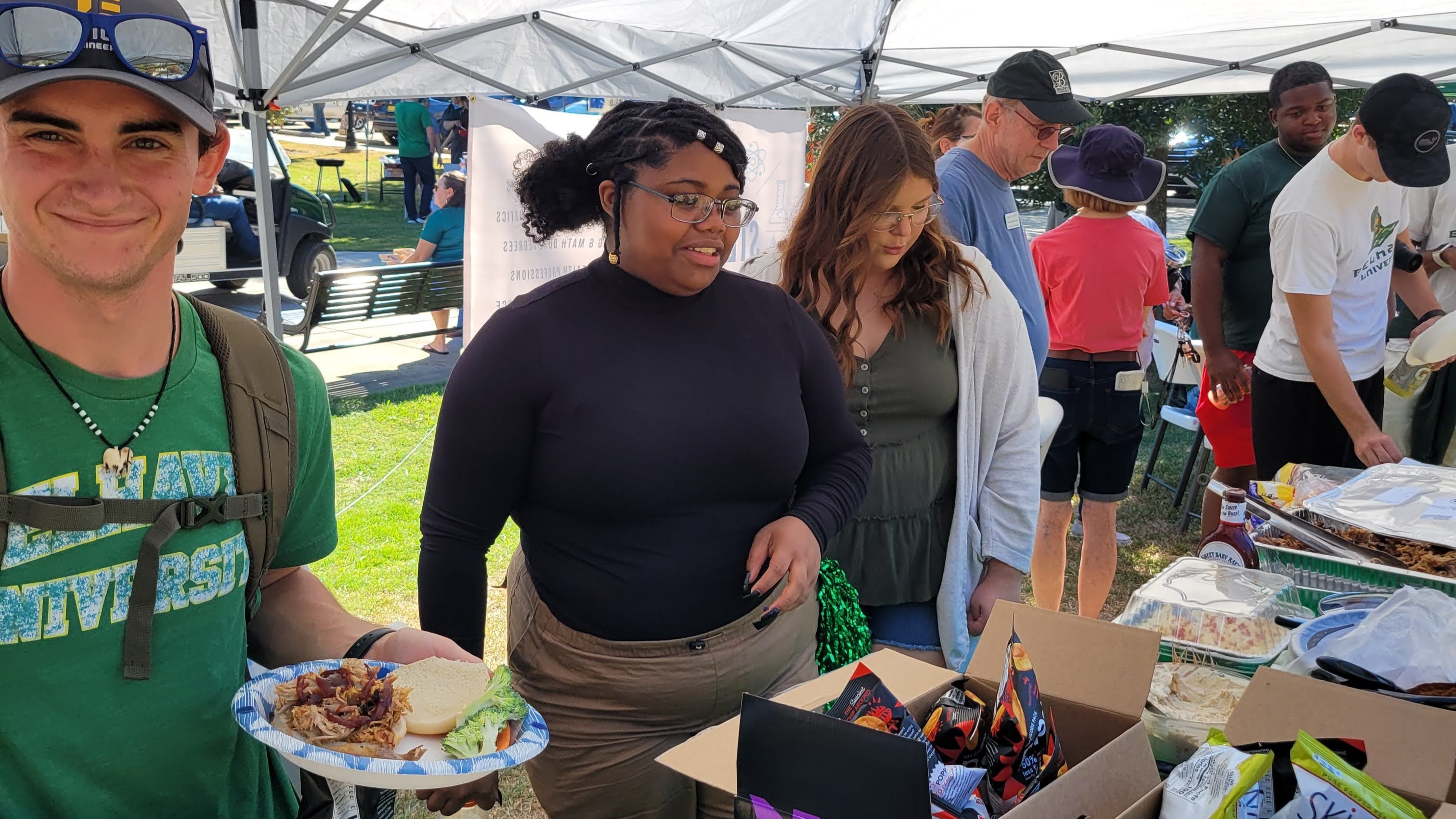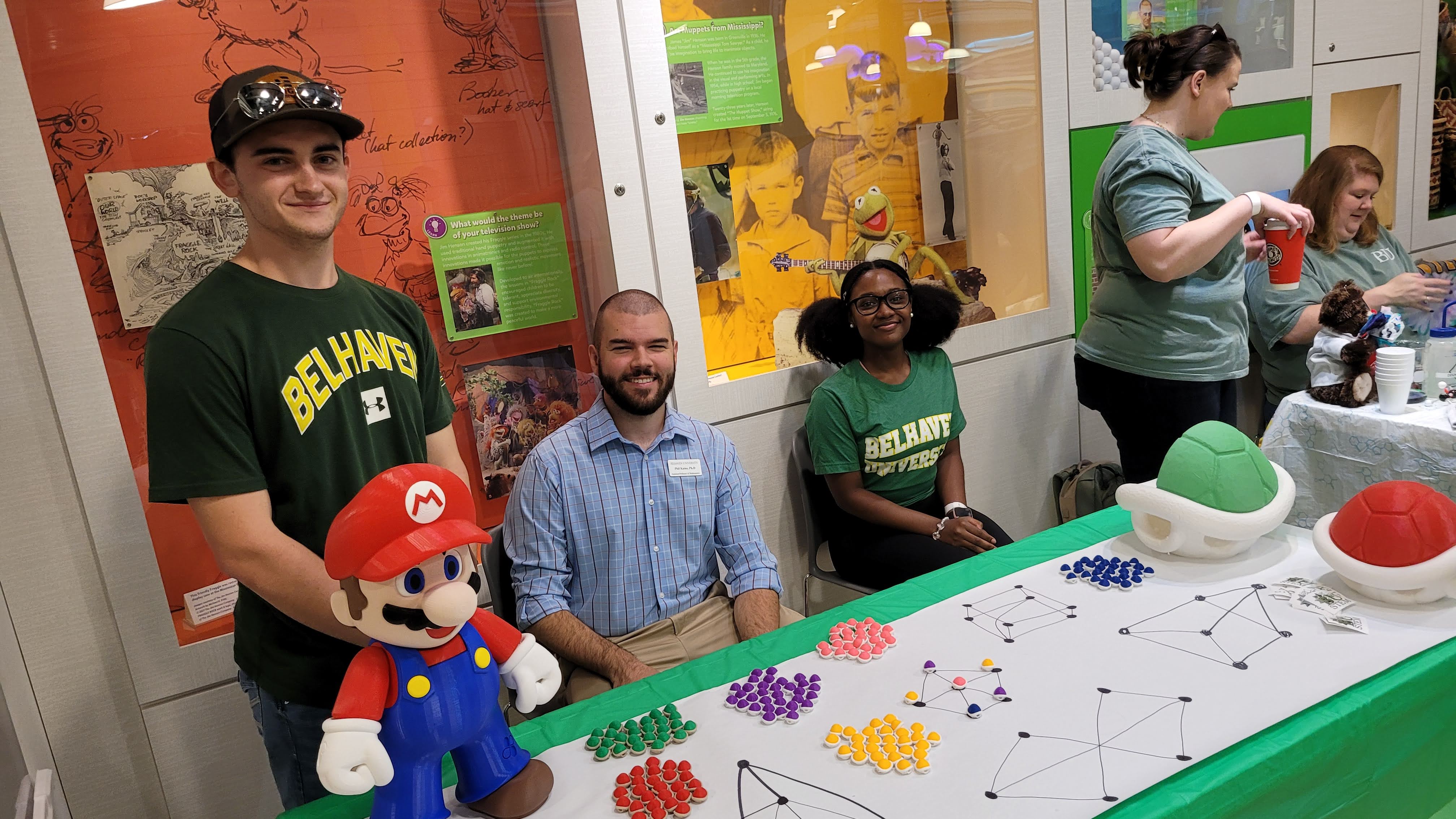Section 1.1 Introducing... Your Math Department!
Welcome to your mathematics department! Whether you’re a freshman new to campus altogether, or you’re a seasoned college student starting a new journey in a mathematics program, getting to know your local community of faculty and peers is the best way to make this program your home.
Subsection 1.1.1 Community
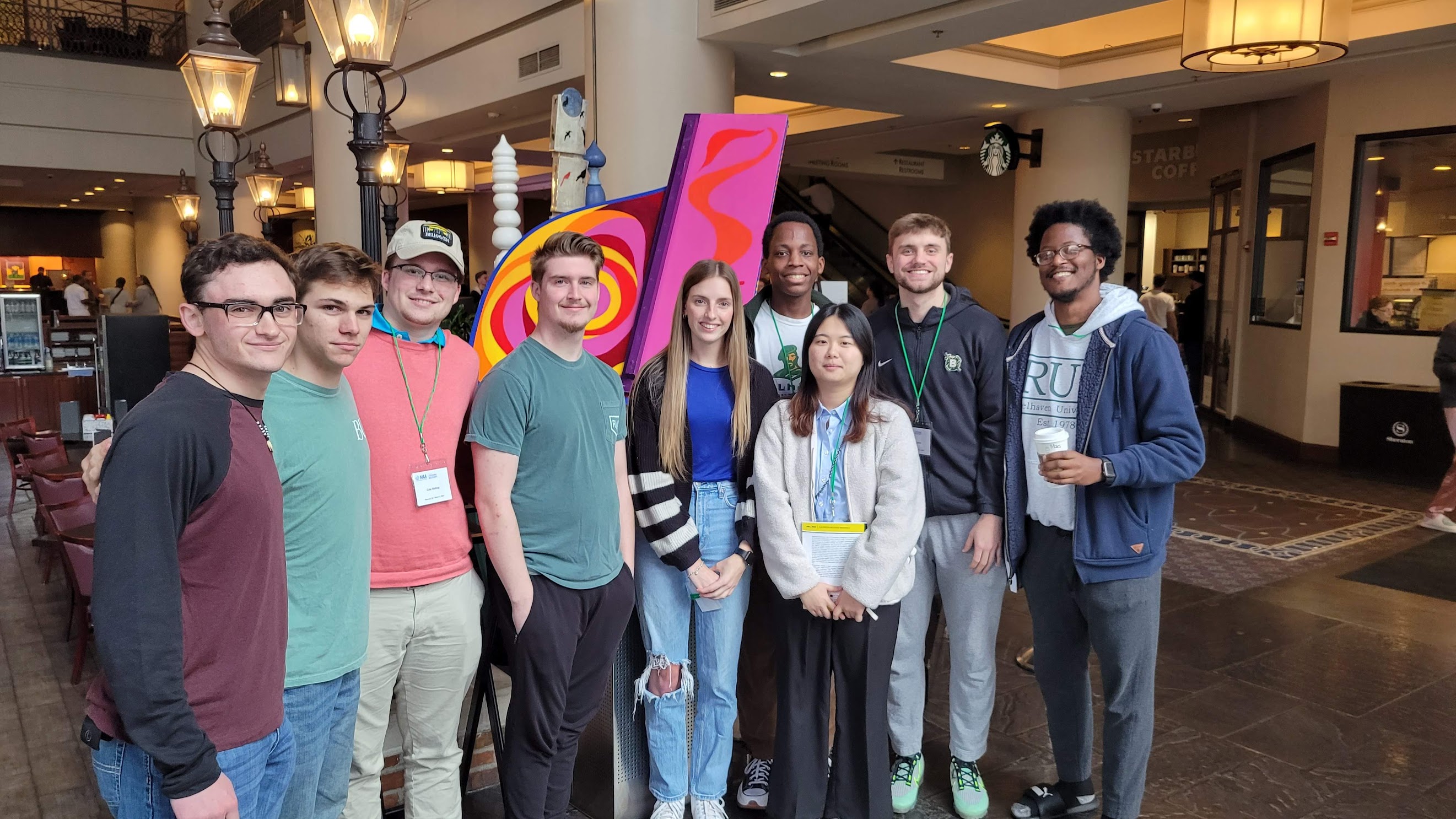
You’re probably here because you think math is, at some level, fun! And why should you have all that fun on your own, when you have several other peers who share that feeling with you?
If you want to get the most out of your mathematics program, the first thing you should do is connect with the commmunity of peers that are studying alongside you. Whether you consider yourself a natural mathematician, or someone who enjoys figuring out mathematical topics through hard work, the most successful math students are those who get involved early and often, so we encourage you to be an active part of your local mathematical community.
Here are some likely opportunities for you to get invovled. (Ask your instructor which ones are happening on your campus — if they aren’t, maybe you can be the one who makes it happen!)
Subsubsection 1.1.1.1 Math Club
Math clubs are student-led organizations that get together frequently to play games, eat some food, and (at least on occasion) sneak in some math! Club members typically help each other with resumes, networks, projects, and more.
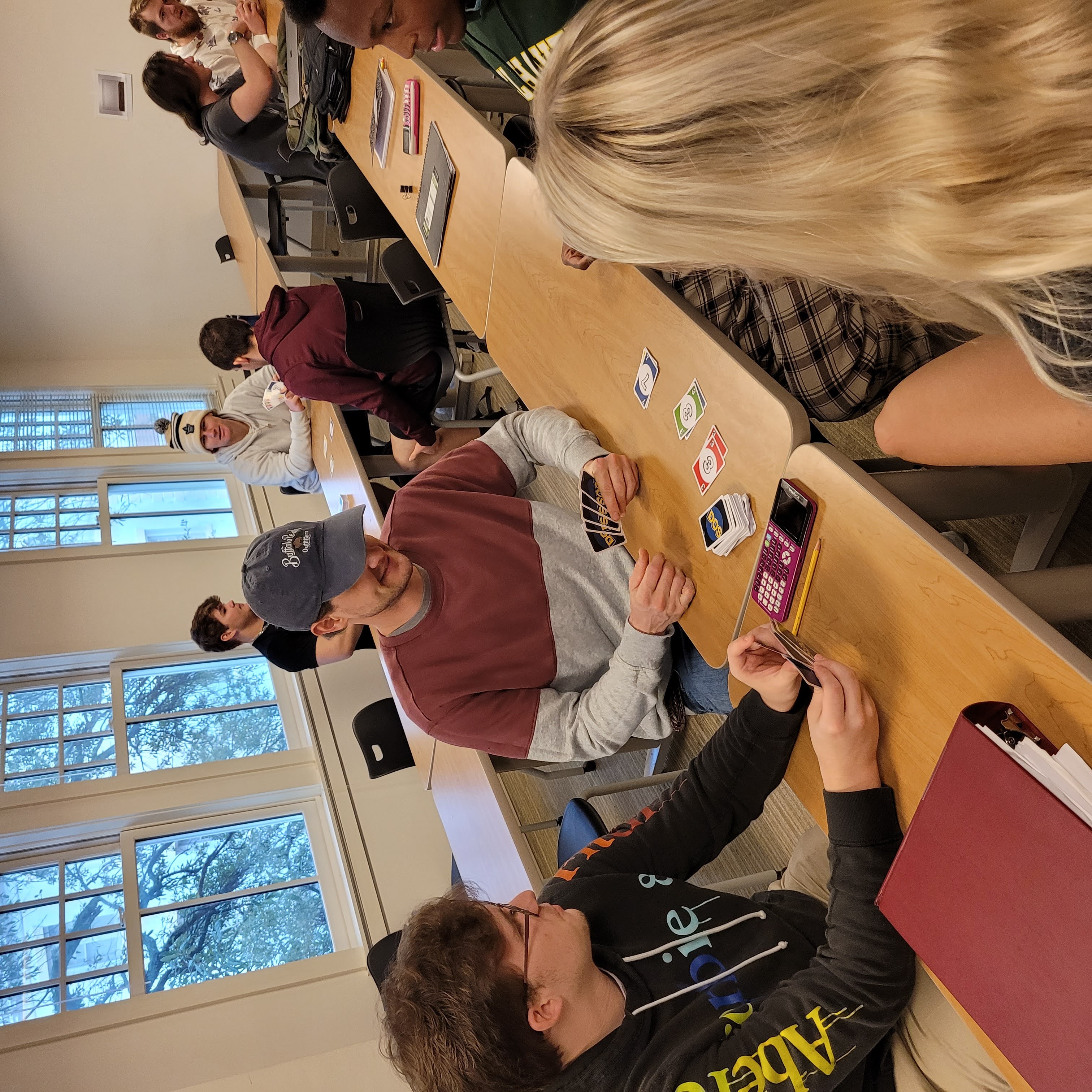
Math clubs are often registered organizations of their school’s student government association, which can mean they are eligible for appropriated funds paid from those student activities you cough up each semester. (No better way to pay for club refreshments, or even cover travel to an undergraduate math conference!)
Some clubs might be affiliated as student chapters of the Mathematical Association of America (MAA), or even the Association of Computing & Machining (ACM) if the club is in a joint mathematics and computer science department. In that case club membership could guarantee membership to one of these professional societies at a discounted rate — ask the club’s faculty advisor to learn more!
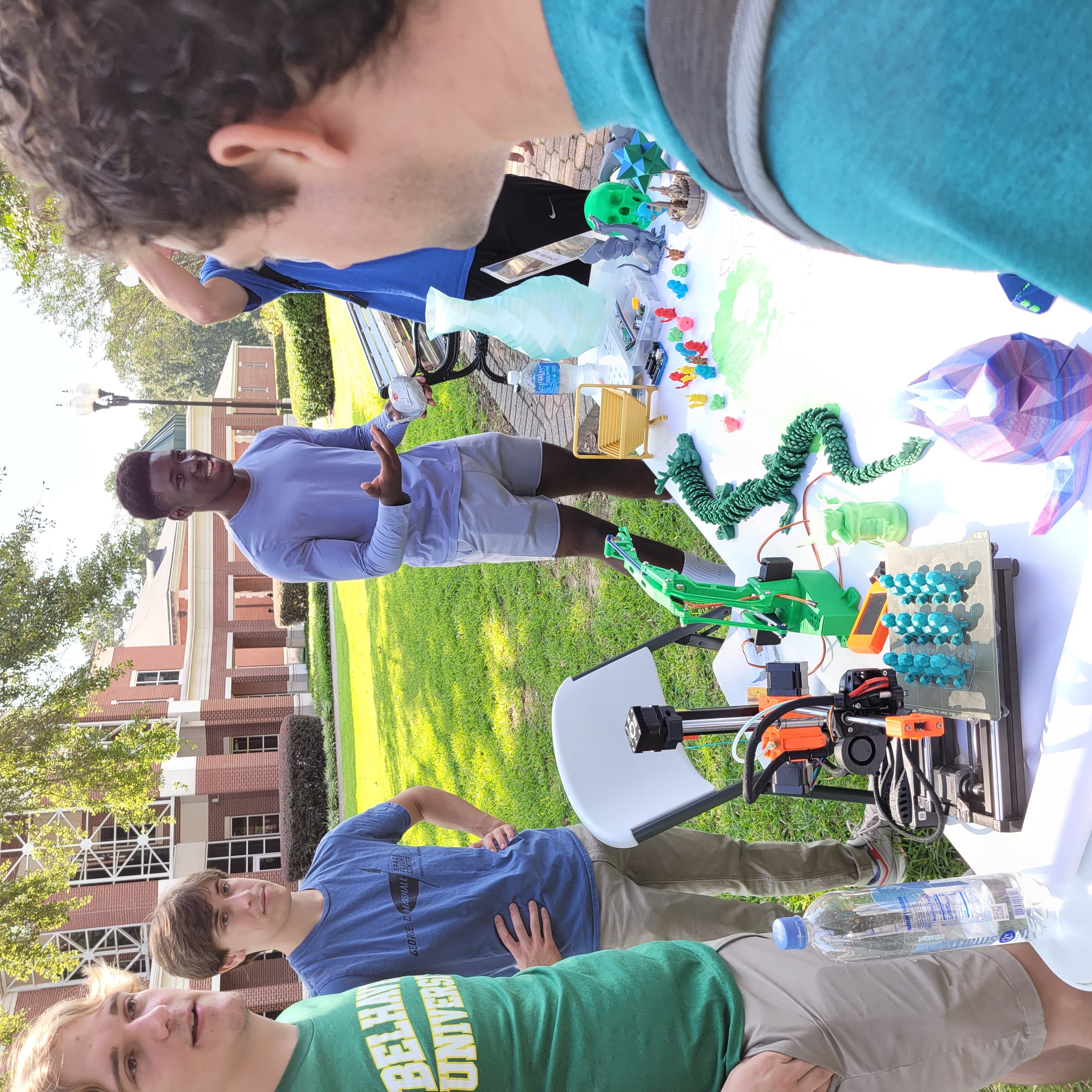
Subsubsection 1.1.1.2 Honors Societies
Several departments are associated with one or more disciplinary honor societies. One such society is Pi Mu Epsilon, dedicated to the promotion of mathematics and recognition of students who successfully pursue mathematical understanding. Honor societies often engage in the same kinds of activities as clubs (and frequently have joint meetings with the clubs to recruit future members), but are not open to all students: you’ll need to apply with a high enough GPA to be eligible for the honor.
1
pme-math.org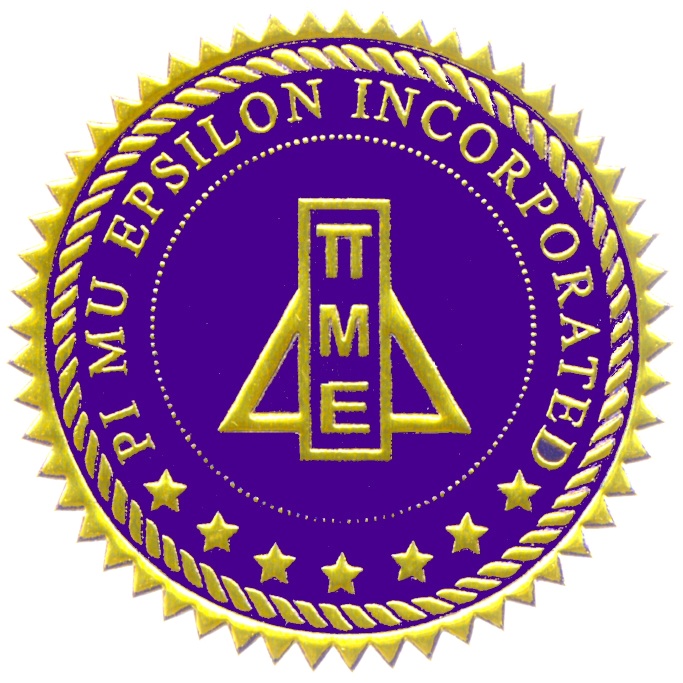
In addition to beefing up your resume for your future job search or graduate school applications, you’ll also be eligible to wear the cords of your honor society at graduation.
Subsubsection 1.1.1.3 Department and College Events
Showing up to department and college events is important to not only connect with peers in the math major, but also to network with your school’s broader STEM community. Often food is involved too...
Subsubsection 1.1.1.4 Connect and communicate with others
Good communication is criminally undervalued by some math students. Go talk to your professors! They want to know you better! Meet your classmates! They’re going to help you through your that tough assignmnent.
If your department has a social platform such as a Facebook group or Discord server, log in and join the conversation to stay in touch with everyone.
Subsection 1.1.2 Academic Experiences
Your degree is measured in credit hours. You’re taking classes ultimately to earn a degree. You’ll also expect some grades in those classes. BUT let’s be careful not to mistake grades and credit hours with actual learning. Our goal in the MCS Department is provide an environment of true learning. We want you to adapt a mentality of a continual learning: one who learns inside and outside of the classroom.
In addition to core classes such as Calculus, Linear Algebra, Discrete Mathematics, and Differential Equations, Belhaven’s MCS department delivers a number of curriculum add-ons. Let’s take a look at what additional academic experiences we offer.
Subsubsection 1.1.2.1 STEM Seminar
Meet professional scientists and mathematicians who share about what they do, how they got there, and how you can too. This is a great way to find internships and jobs.

Subsubsection 1.1.2.2 Mathematical Research
In MAT 391, 392, 491 and 492, students participate in the mathematical research process reviewing recent results of a select topic and attempting to further it. These students will present their findings as a poster and presentation at the Belhaven University Undergraduate Research Symposium (BUURS) and our sectional meetings of the MAA.


Subsection 1.1.3 Belhaven Maker Campus
The Belhaven Maker Campus is a collaboration between Math & Computer Science and Art & Design featuring formative technologies such as 3D printers, CAD drawing systems, laser engraving, and more. We are a community of engineering students, artists, and mathematicians wanting to get our hands busy making things with technology.

Join the Maker Campus, and you can gain access to both of our campuses maker labs. Design your own creations and 3D print them! Customize your gear with laser etching or make custom stickers. There are a lot of possibilities, and the Maker Campus is designed to make your ideas a reality.


Subsection 1.1.4 For Engineering Majors
In addition to academic experiences math majors experience, students in Belhaven’s engineering partnership learn AutoCAD in PHY 119 Intro to Engineering interact with professional engineers from places like Yates construction,
Raytheon, and Asset Engineering. take site visits to Ole Miss, Mississippi State, and places like Nissan and the
U.S.
Army Corps of Engineers Research and Development Center (ERDC).

Subsection 1.1.5 For Actuarial Science Majors
For those majoring in Actuarial Sciences (ASM), students will learn statistical software such as R, sit for the first actuarial exam, the Probability Exam (SOA Exam P).

Subsection 1.1.6 Double Major and Minors
A mathematics major is very valuable, but pairing a math degree with another field will bring more opportunities than you might expect. We recommend either double-majoring or minoring in the following areas:
-
Computer Science
-
Chemistry or Physics
-
Business or Accounting
-
Tradigital Art
Besides these recommended degrees, we have had double majors in Dance, Theatre, Music, History, English, and so much more.
